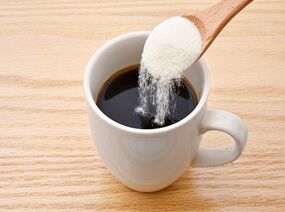国外掀起新的咖啡"健康喝法"
|
People Keep Putting Collagen in Their Coffee, And Scientists Have Weighed In. Collagen products are popping up everywhere. While collagen is probably most well known for its touted skin care benefits and as a major component of lip enhancers and injections, some celebrities, like Kourtney Kardashian, are suggesting that people drink it. Products derived from collagen are not just in skin creams and dietary supplements but even in pillow covers and clothing. Kardashian is even selling collagen supplements.
Collagen is the body's most abundant protein, made up of amino acids, or peptides. It literally glues our bones, cartilage, skin and blood vessels together. It's what makes our tissues grow, mature and move. Its presence under your skin can keep it from sagging over time. Because our bodies begin to lose collagen in our 20s, skin creams and treatments made from the connective tissues of animals seem like an effective way to combat age. And, it has few side effects. But there's a catch – or two. As a female interested in aging gracefully and as a scientist who studies collagen, I have found the plethora of collagen-based products to be interesting. I have been involved with studying collagen for over a decade as our lab is working to develop a collagen made solely in a laboratory instead of sourcing from animals. I have asked other collagen-knowledgeable colleagues what they think of everyone putting it in their coffee, and I get some smirks. The collagen molecule itself is too large to penetrate the surface of the skin when applied in a cream or lotion. It just sits there until it's washed off. Soluble or hydrolyzed collagen, which is broken down into smaller fragments, does penetrate the skin, but these fragments are likely too small to do any good. Likely, a skin improvement is due to additional ingredients in your topical cream or simply additional proline, an amino acid found in collagen. In addition, collagen falls apart at temperatures above body temperature, turning it into plain gelatin – yes, the stuff in Jell-O. At these higher temperatures – when added to hot coffee, for example – collagen's molecular structure melts, diminishing or even negating the desired health benefits. |









